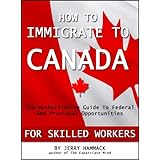I took the following select sections from the paper published by The Canadian Bar Association, laying out their position on the controversial legislation. In
"Bill C-24, Strengthening Canadian Citizenship Act", the CBA states the following:
On the clause regarding the "Intent to reside in Canada if granted citizenship"
The CBA Section opposes requiring applicants to demonstrate an intent to reside in Canada if granted citizenship. First, by creating two tiers of citizenship ‒ natural born Canadians who could travel and live abroad without restriction and naturalized Canadians who would risk losing their status if they were ever to leave Canada ‒ the proposed requirement is likely unconstitutional. Second, the intent requirement will result in a significant drain on CIC resources for both assessment and enforcement, and will not clarify or simplify the criteria or processing of citizenship, contrary to the Bill’s objective.
On the clause regarding "Expanded grounds for revocation"
The proposed grounds for revoking citizenship are broad. The rationale for the list of offences subject to revocation appears to be connected to loyalty to Canada or certain Canadian ideals. However, it is not clear why the loyalty of dual nationals should be put into question more than that of other Canadians. Once the precedent is established for banishing dual nationals, other forms of conduct may be added to the list.
One offence that would permit the Minister to revoke citizenship, under proposed s. 10(2)(b), is a terrorism offence under the Criminal Code or the Canadian equivalent for an offence committed outside of Canada, for which the citizen received at least a five-year sentence. In many countries, allegations of terrorism are used to punish political opponents, facilitated by low thresholds for convictions and harsh sentences. An analysis of whether the conviction is the equivalent of a terrorism offence in Canada is complex, and would be at the discretion of an individual officer.
Section 10.1 (2) makes membership in “an armed force of a country or as a member of an organized armed group and that country or group was engaged in an armed conflict with Canada” a ground for revoking citizenship. The wording is problematic. For example, it would not necessarily require knowledge of the nature of the group with which the person has associated. “Armed conflict with Canada” is not defined and it is unclear when it would apply.
It is also unclear whether membership includes those conscripted and those not on active duty. The CBA Section recommends deleting s. 10(2)(b) and s. 10.1(2). Alternatively, “or an offence outside Canada that, if committed in Canada, would constitute a terrorism offence as defined in that section” should be deleted from s. 10(2)(b) and “armed conflict with Canada” and membership in an “organized armed group” should be more clearly defined in s. 10.1(2).
On the clause impacting the "Lack of hearing, equitable considerations"
Bill C-24 eliminates the right to a Federal Court hearing for those subject to revocation of citizenship, except in limited circumstances. In all other cases, the Minister will make the decision without being required to hold a formal hearing. The CBA Section believes that for a matter as serious as the revocation of citizenship, a formal hearing before an independent and impartial decision-maker must be maintained.
Another aspect of concern is the absence of consideration of equitable factors. Neither the Minister nor the Federal Court would be able to do so. The involvement of the Governor in Council, which can consider these factors under the Act, would be eliminated.
This stands in stark contrast to the procedural protections given to permanent residents in similar circumstances. The CBA Section is of the view that given the importance of citizenship, a statutory tribunal like the Immigration Appeal Division ought to have jurisdiction to consider not only the validity of the decision to terminate citizenship if ministerial revocation is maintained, but also whether there exist humanitarian and compassionate factors to warrant retention of permanent residence if not citizenship.




